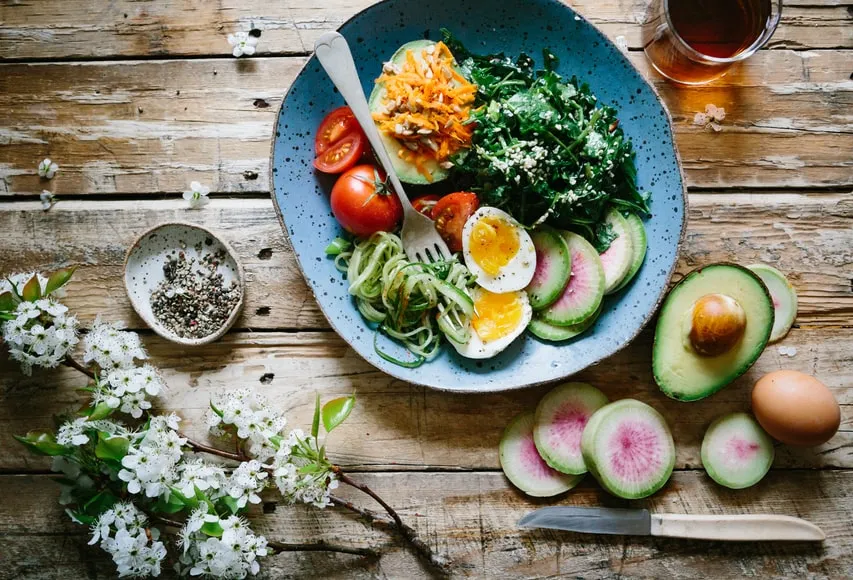Achieving a brighter, whiter smile is a common goal, and teeth whitening treatments are a popular solution. However, the success of your whitening treatment, whether done professionally or at home, depends not only on the procedure itself but also on what you eat and drink afterward. Certain foods and beverages can quickly stain your newly whitened teeth, diminishing the results you’ve worked so hard to achieve. Understanding which items to avoid and for how long is crucial for maintaining your dazzling new smile. This article will provide a comprehensive guide to the foods you should steer clear of after teeth whitening and offer tips to help you keep your teeth looking their best.
Foods to Avoid After Teeth Whitening
Immediately following a teeth whitening treatment, your teeth are more porous and susceptible to staining. This increased porosity means that pigments from food and drinks can easily penetrate the enamel, leading to discoloration. Therefore, a temporary dietary adjustment is essential to protect your investment in a brighter smile.
Highly Pigmented Foods
Highly pigmented foods contain strong colorants that can quickly stain teeth. These foods should be avoided as much as possible, especially in the initial days after whitening. The intensity of their color often correlates with their staining potential. Prioritizing lighter-colored foods can greatly aid in preserving your newly whitened teeth.
Coffee and Tea
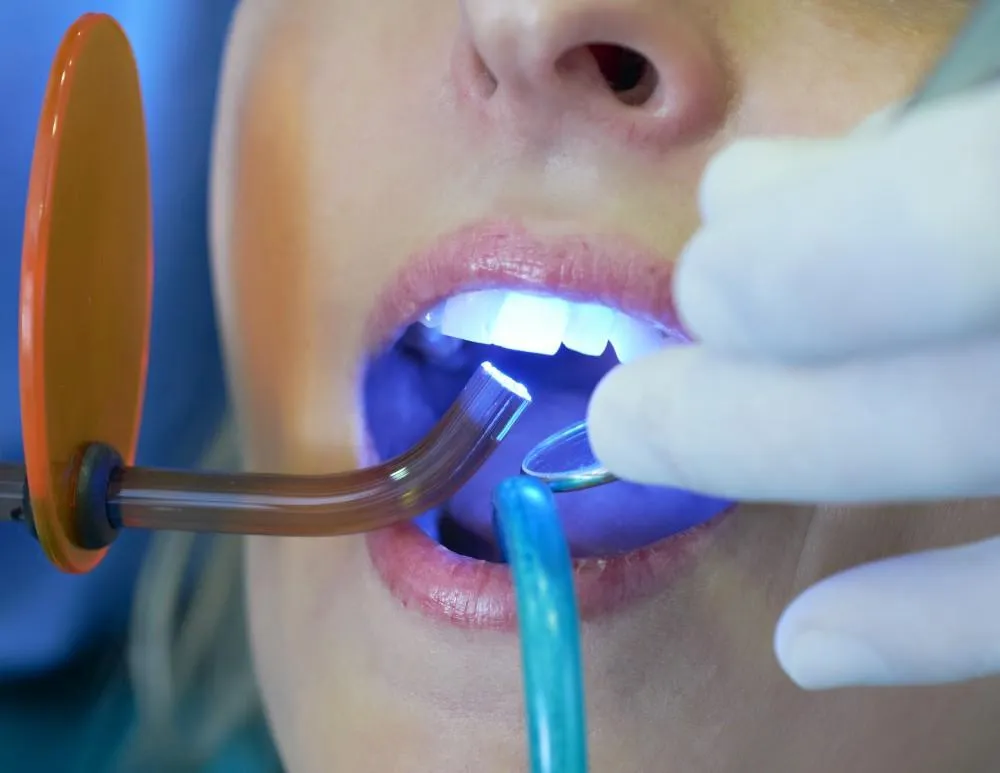
Coffee and tea are notorious for staining teeth due to their high levels of tannins, which are compounds that bind to teeth and cause discoloration. Even herbal teas, especially those with dark hues, can have a similar effect. If you must consume caffeine, consider switching to clear or lightly colored beverages, or using a straw to minimize contact with your teeth. You might consider drinking your coffee or tea before the whitening process or mixing it with milk to help reduce the potential for staining. This small change can make a significant difference in the longevity of your whitening results.
Red Wine
Red wine is another major culprit, thanks to its intense color and tannins. The tannins in red wine act like a magnet for stains, making your teeth appear darker. Even a small amount of red wine can have a noticeable impact on your whitening results. Avoiding red wine for at least a week or two after whitening is highly recommended to prevent staining. If you decide to indulge in red wine, make sure you drink water immediately after.
Dark-Colored Sodas
Dark-colored sodas, such as cola and other carbonated beverages, contain artificial colorings and acids that can stain teeth and erode enamel. The dark pigments easily adhere to the porous surface of your teeth after whitening. These drinks also often contain high sugar content, which contributes to dental issues. Consider substituting these with clear, sugar-free alternatives or water to protect your smile.
Foods with Artificial Colors
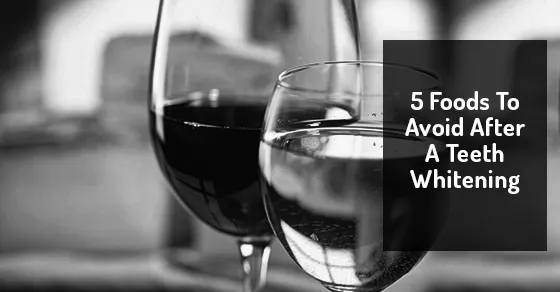
Foods that are artificially colored can also pose a risk to your newly whitened teeth. The artificial dyes used in many processed foods and candies can quickly stain the enamel. Be mindful of sauces, candies, and other items that have intense colors, as they can easily compromise the brightness of your smile.
Soy Sauce and Balsamic Vinegar
Soy sauce and balsamic vinegar, both commonly used in cooking, have strong pigments that can stain teeth. The dark color and acidity of these condiments make them particularly problematic. If you can’t completely avoid these, use them sparingly and consider diluting them with lighter-colored ingredients to reduce their impact.
Berries
Berries, such as blueberries, blackberries, raspberries, and strawberries, contain natural pigments that can stain teeth. While these fruits are incredibly healthy, their dark hues can compromise the results of your teeth whitening treatment. Limiting your consumption of berries, especially during the initial days after whitening, can help maintain the brightness of your smile.
Tomato-Based Products
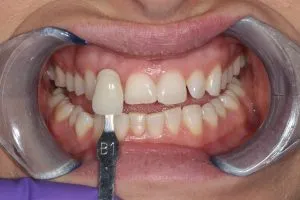
Tomato-based products, such as tomato sauce, ketchup, and tomato juice, contain strong pigments and acids that can stain your teeth. The acidity can also erode enamel, making your teeth more susceptible to staining. Use these items sparingly and be sure to rinse your mouth with water after consumption to help mitigate the impact on your smile.
Acidic Foods
Acidic foods can erode the enamel, making your teeth more porous and more susceptible to staining. This is why it’s important to be aware of the types of foods you’re eating after whitening. Minimizing these foods can help keep your enamel in good condition, and keep your teeth from staining.
Citrus Fruits
Citrus fruits, such as oranges, lemons, and grapefruits, are highly acidic and can erode tooth enamel. The erosion of enamel makes teeth more prone to staining. While these fruits are nutritious, it’s best to limit your intake after teeth whitening. If you consume citrus fruits, rinse your mouth with water to help neutralize the acid and protect your enamel.
Pickles

Pickles, especially those made with vinegar, are highly acidic and can stain your teeth. The acidity of pickles can erode enamel, and the strong color from the pickling process can lead to staining. Consider avoiding pickles to safeguard your newly whitened smile.
Why Avoiding These Foods Matters
The foods mentioned above have the potential to compromise the effectiveness of teeth whitening treatments. The porous nature of your teeth immediately after whitening makes them more susceptible to staining, and avoiding these foods can help maintain your bright smile.
The Impact on Stain Development
The foods and beverages you consume can directly impact the development of stains on your teeth. Highly pigmented items such as coffee, tea, and red wine contain chromogens, compounds that easily adhere to tooth enamel and cause discoloration. Acidic foods can erode the enamel, making it more porous and vulnerable to staining. By understanding the mechanisms of stain development, you can proactively protect your teeth and maintain their whiteness for longer. Proper care will keep your teeth whiter.
Maintaining Results
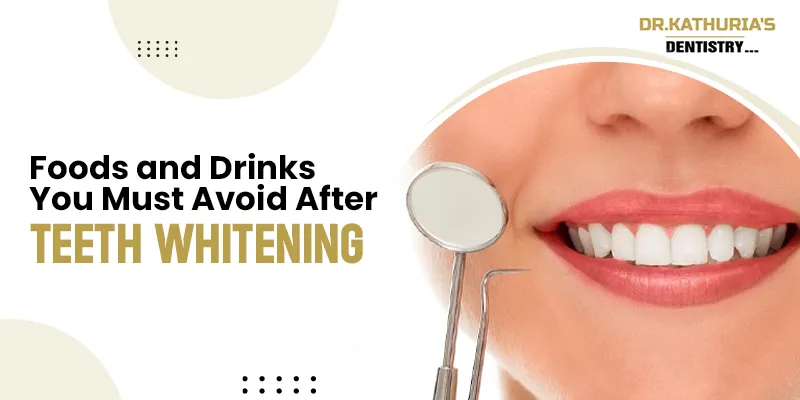
Avoiding stain-causing foods and beverages is just one part of maintaining your results. Regular dental check-ups, consistent oral hygiene, and, in some cases, touch-up whitening treatments can also help you keep your teeth bright. It is essential to follow a comprehensive approach to preserve the results of your teeth whitening treatment for the long term. Proper habits will keep your teeth healthy and white.
Tips for a Whiter Smile
Beyond avoiding certain foods, there are other strategies to help you maintain a whiter smile. These include dietary adjustments, oral hygiene practices, and regular dental care. Incorporating these habits into your daily routine will help you to prolong the benefits of your teeth whitening treatment and keep your smile radiant.
Dietary Guidelines for the First 24-48 Hours
The first 24 to 48 hours after teeth whitening are crucial for protecting your teeth from staining. During this time, it’s essential to consume a white diet. This includes white or lightly colored foods and beverages, such as plain yogurt, white rice, skinless chicken or turkey, bananas, and water. Avoiding all highly pigmented and acidic foods during this period can significantly contribute to the success of your whitening treatment. Sticking to the white diet initially is one of the best ways to keep your teeth white.
Long-Term Dietary Adjustments
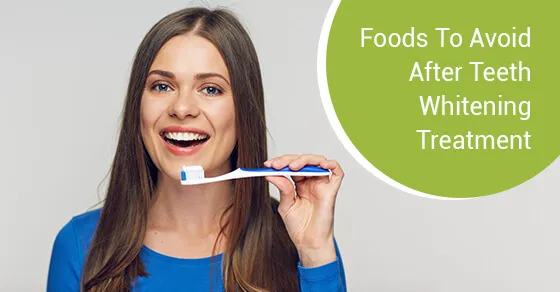
While the white diet is particularly important immediately after whitening, making long-term dietary adjustments can help you maintain a brighter smile for an extended period. Limiting your consumption of staining foods and beverages, using a straw for dark liquids, and rinsing your mouth with water after eating or drinking can all help to minimize staining over time. Developing healthy habits and being mindful of your food choices will contribute to long-lasting results.
Oral Hygiene Practices
Maintaining excellent oral hygiene is essential for keeping your teeth white and healthy. Brushing your teeth at least twice a day with a whitening toothpaste, flossing daily, and visiting your dentist for regular check-ups and cleanings can all help. Consider using a whitening mouthwash to further enhance your oral hygiene routine. Proper oral hygiene practices complement dietary adjustments, maximizing the lifespan of your teeth whitening results. The combination of proper care and avoiding staining food will maximize your results.
In conclusion, achieving and maintaining a brighter smile through teeth whitening requires more than just the procedure itself. Being mindful of the foods you consume, especially immediately after whitening, is critical for preventing stains and preserving your results. By understanding which foods to avoid and incorporating healthy oral hygiene habits into your daily routine, you can enjoy a beautiful, radiant smile for years to come.
